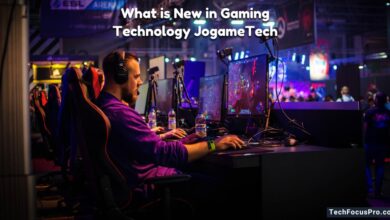How Much Does a Gaming PC Weigh?

When considering building or buying a gaming PC, one aspect that may not be considered is its weight. A gaming PC’s weight might vary greatly depending on its parts, case size, and other accessories.
Gamers who regularly relocate their setups for LAN parties, tournaments, or just rearranging their gaming room may find it helpful to understand the average weight and the factors that affect it.
This section outlines the main factors to consider when calculating a gaming PC’s weight. It explains why this can be an important issue.
Factors Influencing the Weight of a Gaming PC
The weight of a gaming PC can vary significantly depending on various components and design choices. Below are the key factors that influence its overall weight:
Case Material and Size
The case or chassis housing the components is one of the primary factors affecting weight. Cases made from steel or tempered glass tend to be heavier, offering durability and aesthetics. Meanwhile, aluminum or plastic cases are generally lighter and more portable.
Additionally, the case size—whether a full tower, mid-tower, or mini-ITX—affects weight, with more significant cases often weighing more due to their size and the structural material required.
Internal Components

Internal hardware components contribute significantly to a gaming PC’s weight. High-performance GPUs (graphics processing units) like the NVIDIA RTX series or AMD Radeon cards are often large and heavy due to their cooling systems.
Similarly, power supply units (PSUs) with higher wattages, advanced CPUs, and large heatsinks or liquid cooling systems can add to the total weight. Even multiple hard drives or SSDs for data storage can incrementally increase the system’s weight.
Cooling Solutions
Cooling solutions are another critical factor. Air coolers with heavy heatsinks and multiple fans or custom liquid cooling setups with water blocks, radiators, and reservoirs can add considerable weight. The choice of cooling depends on performance requirements but also directly impacts portability.
Additional Peripherals and Customizations
Customization and added peripherals such as RGB lighting kits, extra fans, or mounting racks can also increase the weight. While these elements enhance aesthetics and functionality, they often come at the cost of portability.
Build Complexity and Configuration
Lastly, the complexity of the build plays a role. For example, a dual-GPU setup or additional PCIe cards like Wi-Fi adapters or capture cards can increase the weight compared to a more straightforward build. Enthusiasts who prioritize high-end performance often end up with heavier configurations.
Read Also:- How to Reduce CPU Usage While Gaming?
Average Weights for Different Configurations

When evaluating the weight of a gaming PC, it is essential to consider the various configurations and components that influence the overall weight.
Factors such as the type of case, cooling system, power supply, and kind of components play a significant role in determining weight. Here is a breakdown of average weights for different configurations:
Lightweight and Compact Builds
Lightweight gaming PCs are typically designed for portability and space-saving purposes. These builds often use mini-tower or small-form-factor (SFF) cases, which are significantly smaller and lighter than standard mid-tower or full-tower cases.
Depending on the choice of components, such as compact power supplies and cooling solutions, they commonly weigh between 10 and 20 pounds (4.5 to 9 kg).
Mid-Range Mid-Tower Builds
Mid-range gaming PCs often use mid-tower cases, the most commonly chosen form factors, because they balance size, airflow, and expandability. These configurations frequently include standard graphics cards, power supplies, and cooling systems.
The typical weight for such builds ranges from 20 to 35 pounds (9 to 16 kg), making them suitable for stationary use and manageable for occasional transport.
High-Performance Full-Tower Builds

High-performance gaming PCs utilize full-tower cases to accommodate advanced components like multiple graphics cards, liquid cooling systems, and more extensive storage solutions. These builds focus on delivering maximum performance, which often results in increased weight.
A high-performance full-tower setup can weigh between 40 and 60 pounds (18 to 27 kg), especially when using premium materials such as tempered glass panels or larger radiators for liquid cooling.
Pre-Built Systems versus Custom Builds
Pre-built gaming PCs are typically designed with standardized weights, largely dependent on their case size and hardware configuration. Manufacturers often optimize for durability and airflow, so their weight generally falls within the stated ranges of the case type used.
Conversely, custom-built PCs allow greater flexibility in selecting lightweight components or materials. Still, depending on user preferences and upgrades, they can also result in heavier builds.
Comparisons with Other Systems

Several factors come into play when comparing PC weights to other systems, such as laptops, consoles, or all-in-one (AIO) computers. Laptops, for instance, are specifically designed for portability.
They are typically much lighter than even the most miniature desktop setups, making them ideal for users who need to work or game on the go.
However, this portability has trade-offs in upgrade ability, thermal performance, and overall power, as laptops’ compact designs limit them.
Consoles, on the other hand, often weigh between laptops and desktop PCs. While they are designed to be stationary, their compact, all-in-one nature means they usually weigh less than a full desktop setup with separate peripherals.
Consoles are optimized for gaming and media consumption but lack the versatility and performance customization desktop PCs offer.
All-in-one computers combine the display and computing components into a single unit, streamlining the setup and reducing overall weight compared to traditional desktops.
However, due to the integrated screen and components, these systems can still be heavier than laptops. AIOs are excellent for saving space but, like consoles, do not offer the modularity or flexibility of traditional PC systems.
While desktops may weigh more than these alternatives, they provide unmatched user control, power, and upgrade potential, often top priorities for enthusiasts and professionals.
Read More: What pc specs are equivalent to ps5?
FAQs
What is the average weight of a gaming PC?
The weight of a gaming PC can vary depending on the size and components. A standard gaming PC weighs between 20 to 40 pounds (9 to 18 kilograms).
What factors influence the weight of a gaming PC?
Several factors contribute to the weight, including the case size, the materials used (e.g., aluminum vs. steel), the number of components like GPUs and cooling systems, and whether it includes additional peripherals.
Are smaller gaming PCs lighter than full-sized ones?
Compact or mini-ITX systems are usually lighter than mid-tower or full-tower builds due to their smaller case size and fewer components. However, high-performance parts in small cases can still add significant weight.
Does the type of cooling system affect the weight?
Yes, liquid cooling systems tend to be heavier than air cooling setups due to the additional weight of radiators, pumps, and coolant reservoirs.
How much does a fully custom-built gaming PC weigh?
A fully custom-built gaming PC can weigh 25 to 50 pounds (11 to 23 kilograms) or more, depending on the user’s choice of high-end or specialized components.
Is weight a concern for portable gaming PCs?
Weight might be a consideration if you plan to move your gaming setup frequently. If portability is essential, consider a lighter, compact build or a gaming laptop alternative.
Why is knowing the weight of a gaming PC important?
Understanding the weight is essential for transport, desk support, and overall portability, especially if you attend events like LAN parties or frequently rearrange your setup.
Final Thoughts
In conclusion, every computer system has advantages and can be used by various users. While they are not highly portable, desktop computers are the most excellent option for those who require power, customization, and upgradeability. Because they are portable and easy, laptops are ideal for anyone who needs to work or play on the go. All-in-one PCs jointly strike a balance between a compact design and respectable performance for daily duties. Consoles have a special function for gamers, even if they are not conventional PCs. The “best” system will ultimately rely on your requirements, including whether you want something substantial, portable, or small. Before you decide, carefully consider what is most important to you.






